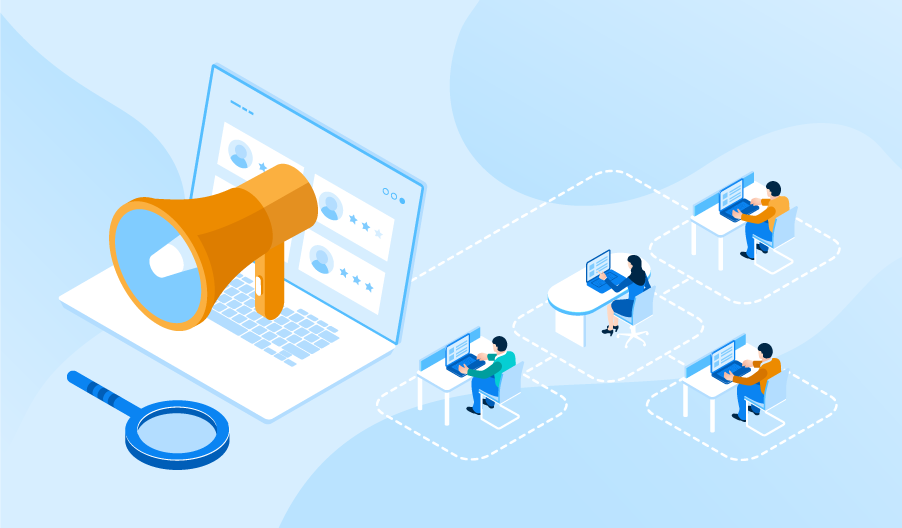The Growing Need for Temp Staffing Software

Temporary staffing agencies face unique challenges, including high-volume hiring, fluctuating workforce demands, and compliance requirements. Traditional methods of managing temp workers through spreadsheets and manual processes are inefficient and prone to errors. Temp staffing software automates critical tasks such as shift scheduling, time tracking, and payroll processing, reducing administrative burdens.
Additionally, the rise of the gig economy has increased demand for flexible staffing solutions. Temp staffing software helps agencies quickly match candidates with job openings, ensuring businesses get the right talent when needed.
Key Features of Temp Staffing Software
Temp staffing software offers specialized functionalities designed to meet the needs of staffing agencies. A robust applicant tracking system (ATS) allows recruiters to post jobs, screen candidates, and manage placements efficiently. Automated resume parsing and AI-driven candidate matching help identify the best-fit applicants quickly.
Shift scheduling is a crucial feature that enables agencies to assign workers to jobs based on availability, skills, and location. Timesheet and attendance tracking ensure accurate payroll processing, while compliance management tools help agencies adhere to labor laws and certification requirements.
Integration with CRM for recruiting enhances client and candidate engagement by storing communication history, tracking interactions, and automating follow-ups. Reporting and analytics provide insights into placement rates, worker performance, and revenue trends, helping agencies make data-driven decisions.
Benefits of Using Temp Staffing Software
Implementing temp staffing software brings numerous advantages to staffing firms. Automation reduces manual work, allowing recruiters to focus on strategic tasks such as client acquisition and candidate engagement. Faster placement cycles mean businesses get temporary staff quickly, improving client satisfaction.
Real-time visibility into worker availability and job openings helps agencies fill positions faster. Compliance features minimize legal risks by ensuring worker certifications and contracts are up to date. Mobile accessibility allows recruiters and temp workers to manage schedules, submit timesheets, and communicate on the go.
By integrating temp staffing software with recruiting agency software, firms can manage both permanent and temporary placements from a single platform. This unified approach enhances efficiency and reduces the need for multiple disconnected systems.
Top Temp Staffing Software Solutions in 2024
Several temp staffing software solutions stand out for their advanced features and industry-specific functionalities. Bullhorn is a leading choice, offering a comprehensive ATS, CRM, and workforce management tools tailored for staffing agencies. Its automation capabilities and customizable dashboards make it ideal for large firms.
Another top contender is TempWorks, designed specifically for temp staffing agencies. It includes shift scheduling, payroll integration, and compliance tracking, making it a powerful all-in-one solution. For smaller agencies, Zoho Recruit provides an affordable yet feature-rich option with AI-driven candidate matching and CRM integration.
How CRM for Recruiting Enhances Temp Staffing Operations
A CRM for recruiting is essential for maintaining strong relationships with clients and candidates. It stores detailed profiles of both employers and job seekers, tracking every interaction from initial contact to placement. Automated email sequences and reminders ensure timely follow-ups, improving response rates.
CRM systems also help agencies segment their talent pool, making it easier to match candidates with job openings based on skills, experience, and location. Advanced reporting tools analyze recruitment performance, helping firms refine their strategies and increase placement success rates.
When integrated with temp staffing software, CRM systems provide a seamless workflow where recruiters can manage both temporary and permanent placements efficiently. This integration ensures that no candidate or client is overlooked, leading to higher retention and repeat business.
Choosing the Right Temp Staffing Software for Your Firm
Selecting the best temp staffing software depends on the size and needs of your agency. Large staffing firms may require enterprise-level solutions with advanced automation and scalability, while smaller agencies might prioritize affordability and ease of use.
Key factors to consider include:
Ease of Integration – Ensure the software works with existing tools like email, calendars, and payroll systems.
Automation Capabilities – Look for features like auto-scheduling, resume parsing, and AI-driven matching.
Compliance Management – Verify that the software tracks certifications, tax forms, and labor laws.
Mobile Accessibility – A mobile-friendly platform allows recruiters and workers to manage tasks on the go.
Before committing, take advantage of free trials and demos to test usability. Reading reviews from other staffing professionals can also provide valuable insights.
The Future of Temp Staffing Software
The future of temp staffing software lies in artificial intelligence (AI) and machine learning. AI-powered tools can predict candidate success, automate initial screenings, and recommend optimal job matches. Chatbots are becoming increasingly popular for handling candidate inquiries, reducing recruiter workload.
Blockchain technology is also emerging as a solution for secure credential verification, minimizing fraud in hiring. As remote and hybrid work models grow, temp staffing software will incorporate more virtual onboarding and collaboration features to support distributed teams.
Conclusion
Temp staffing software is no longer a luxury but a necessity for staffing firms looking to stay competitive. By automating key processes, improving workforce management, and integrating with CRM for recruiting, agencies can enhance efficiency, reduce costs, and deliver better service to clients and candidates.
Investing in the right temp staffing software, along with recruiting agency software, ensures a streamlined hiring process, faster placements, and long-term business growth.
FAQs
What is the main advantage of temp staffing software?
Temp staffing software automates shift scheduling, time tracking, and payroll processing, reducing manual work and improving efficiency for staffing agencies.
How does CRM benefit temp staffing agencies in recruiting?
CRM for recruiting helps agencies maintain strong relationships with clients and candidates by tracking interactions, automating follow-ups, and improving engagement.
Can temp staffing software integrate with other recruitment tools?
Yes, most temp staffing software solutions integrate with ATS, payroll systems, and email platforms to provide a seamless workflow.
Is temp staffing software suitable for small agencies?
Absolutely. Many temp staffing software options offer scalable pricing and user-friendly features tailored for small to mid-sized agencies.
What future trends will impact temp staffing software?
AI-driven automation, blockchain for credential verification, and enhanced mobile capabilities are key trends shaping the future of temp staff.
Note: IndiBlogHub features both user-submitted and editorial content. We do not verify third-party contributions. Read our Disclaimer and Privacy Policyfor details.







